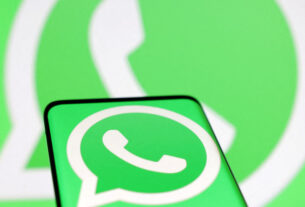A huge crises was needed for Facebook to push its policy rationale after it seemed that nothing would convince its stubborn CEO to give up a free hand to every incitement, hatred, and lies.
Two huge crises were needed for Zuckerberg to push its policy rationale after it seemed that nothing would convince its stubborn CEO to give up a free hand to every incitement, hatred, and lies.
The social media partially withdrew from its position last night, ten days after a coalition of human rights groups called for a boycott of Facebook.
What influenced the company’s position were announcements by three of the world’s largest companies – Coca-Cola, giant communications company Verizon, and consumer food supplier Unilever – that would curb Facebook advertising following its policies. Coca-Cola has also announced that it will suspend advertising on all social networks, not just Facebook-owned ones.
Unilever’s announcement came just before Wall Street closed, severely damaging the digital giant’s equinox: Facebook’s share plunged 8.3 percent, Twitter fell 7.4 percent, and Google lost 5.7 percent.
The trend has affected many tech stocks, including Apple down 3.1 percent. The entire trade ended 2.4 percent down on the S&P 500, partly due to the rapid expansion of the US epidemic.
Facebook’s CEO Mark Zuckerberg’s net worth fell to $7.2 billion last night – and it dropped from third place on the world’s wealthiest to fourth place, with $82 billion. Jeff Bezos, in the first place, has twice as much money as Zuckerberg.
Four tech stocks – Facebook, Amazon, Netflix, and Google – hold more than 10 percent of all S&P 500 shares.
Google and Facebook share most of the online advertising market. About 97 percent of Facebook’s $70 billion in annual revenue comes from advertising.
These companies, Facebook, in particular, have greater political and social influence than many companies before them.
That’s how did human rights groups beat Zuckerberg, who just a week earlier insisted on maintaining his platform’s free speech and neutrality?
The chain of events began earlier in June, in the U.S. President Doland Trump’s Facebook post: “When the looting starts, the shots start.
That same week, Twitter announced that it would begin flagging false tweets and warning of inciting and polarizing content.
Zuckerberg refused to act in a similar manner, despite senior company pressure and the resignation of employees.
He told of a phone call with Trump in which he expressed his concern about the post, but claimed he did not violate Facebook’s guidelines.
June 17: Call for a boycott Facebook ads
U.S. human rights groups, including the Anti-Defamation League and the Racial Equality Alliance (NAACP), have called on large advertisers to boycott Facebook ads, protesting the social network’s failure to prevent polarization and hostility.
The campaign, #StopHateForProfit, followed years of discussions with Facebook, which activists say has not changed its policy enforcement when it comes to preventing hate speech and false information.
Representatives of black organizations who met with Zuckerberg said they were stunned by his reluctance to act against incitement and racism.
That same day, the Trump administration filed a congressional bill to eliminate the legal protection that social networks receive.
Trump, however, has targeted other companies, such as Twitter.
June 19: The first challenge
Two days after the call for a boycott, North Pace, a clothing and camping equipment and travel manufacturer were the first to act. The announcement was made laconically: “We’re out”.
In the days that followed, other sports and camping apparel companies joined: REI, Arctrix, Patagonia and Eddie Bauer – all relatively small companies. Ben & Jerry’s joined the boycott Facebook ads last week, in line with the social image fostered by the ice cream maker.
June 25: Verizon, first giant company joined
Verizon is a giant cellular company serving about 152 million subscribers in the U.S. Data from the Pathometric Research Company.
June 26: Coca-Cola and Unilever
Verizon was the big crack in the dam. Within a day, it was joined by Unilever, the global brand giant that produces Dove Soaps, Lipton Tea and Mayonnaise Helmets, and Coca-Cola.
Unilever was the catalyst for the hard fall in Facebook stock.
Beverage maker, Coca-Cola, will suspend advertising on all social media platforms for at least 30 days, has been the most dramatic.
“There is no room for racism in the world and no room for racism on social media,” Coca Cola CEO James Quincy wrote on the company’s website. “We review our advertising policies and determine what changes are needed. We also expect greater accountability and transparency from our social media partners, ”
Coca Cola is now committed to social justice in light of the social protest over police violence that resulted in the killing of black people in the streets.”
Coca-Cola has been widely criticized over the years for selling products that harm consumer health and the environment. In its last step, human rights groups were welcomed.
June 26: Facebook put a white flag – at least partially
Responding to the widespread boycott Facebook ads, Zuckerberg made a speech yesterday announcing that the social network would clearly mark all political posts she sees as “harmful”. Facebook will also tighten its policy “to act in the face of the challenges our country faces …”
The company will ban ads that containing threatening and racist descriptions, remove content, including from politicians, incite violence, or oppress voting rights. We will also flag additional content issues, the company said.
Following Unilever’s announcement, Facebook has announced that it will ban white supremacist organizations from posting and uploading posts, and will use artificial intelligence to find abusive content. “We invest billions of dollars a year to keep our community safe,” spokesperson Andy Stone said.
“Zuckerberg’s speech on Friday was 11 minutes of wasted opportunity to commit to change,” tweeted Rashad Robinson, president of Color of Change, a boycott organizer.
Around 100 companies have joined the boycott.
How much they spend on Facebook advertising?
Unilever spent $42 million on Facebook advertising in 2019, and Verizon and REI spent $ 23 million each. Hundreds of major advertisers spent $4.2 billion on Facebook platforms about 6 percent of the company’s revenue, according to Pathmatics. The biggest clients are Home Depot, Wal-Mart, Microsoft, AT&T, and Disney.
“We advised our clients to move their advertising budgets elsewhere – such as online newspapers, TV, and platforms like Hollow,” said Nancy Smith, president of advertising consulting firm Analytics Partners.
Facebook has struggled to appease its advertiser’s views on conference calls and emails it sent last week.
However, following the Corona crisis, many small businesses have reduced their budgets, so Facebook is more dependent on big advertisers, like Coca Cola.
The beverage maker is a good example of an influential company whose reputation has been tarnished in recent years by environmental damage and claims that its products are harming consumer health. Coca-Cola needs an image victory, and the Facebook fight could pay off in this era, where the public opposes racism and its confidence in the political establishment is in a slump.
Bottom line: Zuckerberg needs to choose the risk
Zuckerberg built Facebook in a way that guarantees him total control. There was something he would kiss.
His steps may seem almost too little and too late. But it is likely that with his withdrawal from his free-hand policy he will appease advertisers enough to eliminate the boycott.
In that case, he puts the company under the wrath of Trump, who relies heavily on social networks to spread his word and do election propaganda. If Trump loses and Democrats control the White House and Congress – Facebook’s situation could be even more difficult: Democratic officials, including Sen. Elizabeth Warren, are proposing to dismantle it from its subsidiaries, Whatsapp and Instagram.
Read more about: facebook, Mark Zuckerberg




